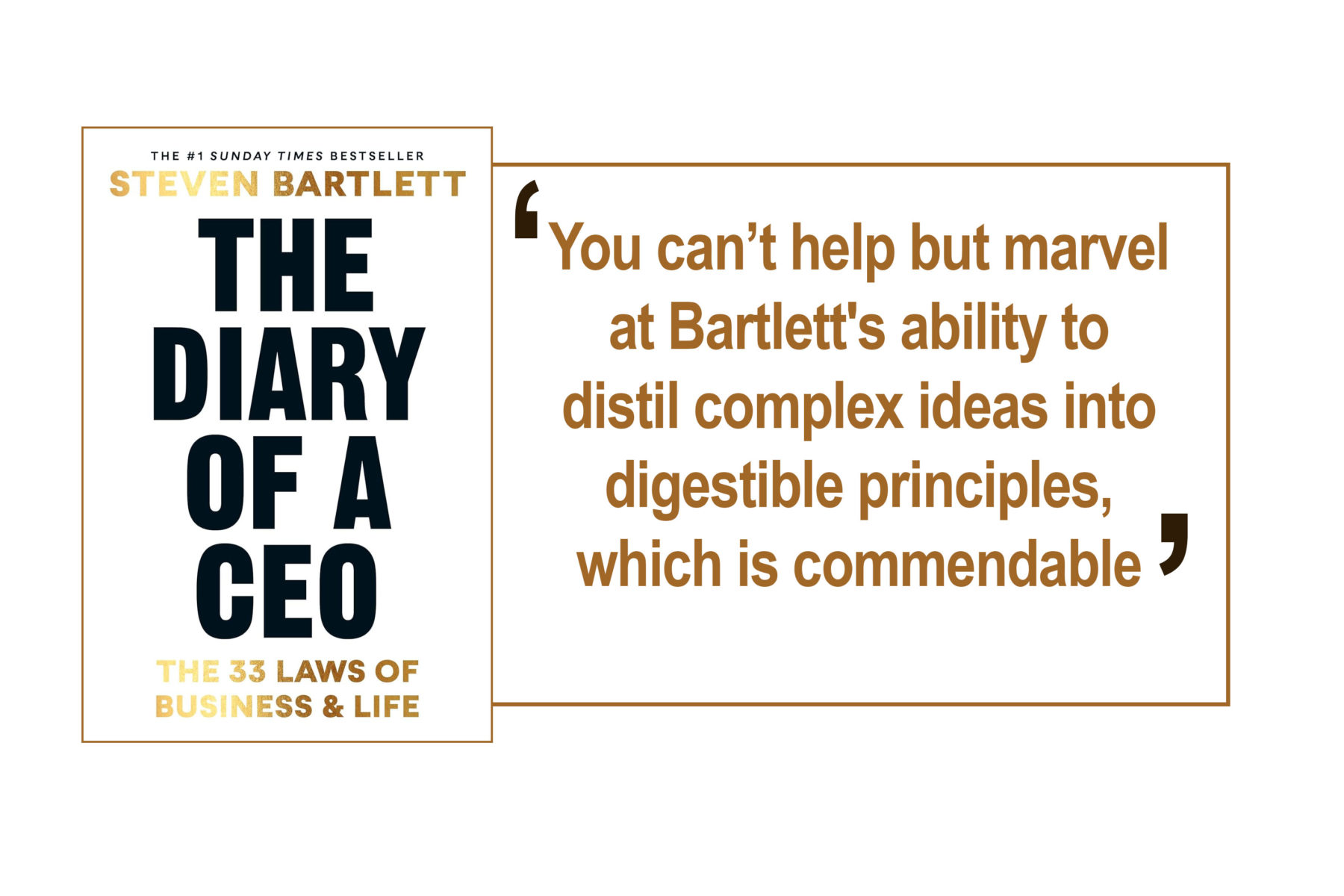
Steven Bartlett’s book The Diary of a CEO is a demonstrative path into the mind of a modern-day entrepreneurial elite, Manasvi Madan writes in this review.
We all know that self-help books aren’t magic fixes, but it’s on point to think of them as treasure maps, not wands. Even the greats in this very domain don’t shy away from calling out the lack of action as the biggest reason for the flak that the industry is often riddled with. Their advice is not direct, though; it’s left open to interpretation. Jim Rohn’s truth bomb goes like this: “Life improves with change, not chance.” Tony Robbins goes on to serve a reality check: “Success demands massive, determined action.” Zig Ziglar’s reminder is loud and clear: “Starting beats perfection—no rockstar entrance required.”
A simpler and more direct translation: these books aren’t supposed to be treated like spectator sports. They’re crafted to be your playbook for life. It’s not just about reading them and feeling good about the progress you’ve made just by knowing it all; it’s about rolling up your sleeves, diving into action, and making those profound changes in the real world. That’s where the magic truly happens.
The Diary of a CEO by Steven Bartlett is a demonstrative path into the mind of a modern-day entrepreneurial elite. Bartlett is a young and accomplished personality who offers a roadmap to inspiring greatness through distilled wisdom, which has been lived and learned through his roles as CEO, founder, and board member of billion-dollar companies and his podcast, “The Diary of a CEO”. His approach is divided into four pillars of life, going on to reflect a blend of simplicity and perceptiveness, along the lines of Einstein’s mantra around simplicity.
In his book, Steven Bartlett proceeds to explain the 33 laws through the lens of these four pillars and shares anecdotes and examples to provide just enough context. It makes these laws look easy to apply.
The first pillar is self-mastery, emphasizing control over oneself as the long-standing cornerstone of success. In the second pillar, he explains that compelling narratives are the ultimate currency of humanity. In the third pillar—philosophy, Bartlett establishes that personal and professional beliefs are the compass that guide behaviours towards incremental greatness, echoing through business, sports, and academia. The fourth pillar, the team, reframes the concept of a company as a collective of individuals. Bartlett asserts that success hinges on assembling the right minds bound by a transformative culture. The concept of a shared sense of skin in the game is the biggest binding force for a disruptive organization, according to Bartlett in The Diary of a CEO.
The biggest differentiator of Bartlett’s book lies in its simplicity and holistic approach to wisdom. It indicates the path but refrains from being prescriptive. The idea that there’s only one way to make it big is negated at every turn. The book seeks to be a guiding force instead of a step-by-step, how-to guide.
To strengthen the foundation even before the laws are revealed, Bartlett introduces the concept of the five buckets, loosely modeled on Maslow’s hierarchy of needs. This accessible framework, involving knowledge, skills, network, resources, and reputation, guides readers on a strategic progression for holistic career development.
As you dive deeper, you can’t help but marvel at Bartlett’s ability to distil complex ideas into digestible principles, which is commendable. His storytelling prowess, evident in his successful podcast, carries over into the book, making it an engaging and relatable read.
“The Diary of a CEO” is a valuable addition to the self-help genre, offering practical insights and a refreshing perspective from a young entrepreneur who has navigated the complexities of building billion-dollar companies. Bartlett’s authenticity and genuine desire to share his knowledge make it a worthwhile read for those embarking on their journey to greatness.
Walk into your nearest bookstore to read them or Whatsapp +91.8800200280 to order. Buy the book(s) and the coffee’s on us.
